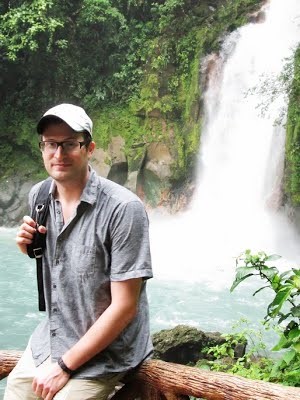Recent graduate Collin Payne, faculty member in Demography at the Australian National University, stopped in to talk with us about his current projects and his experience at Penn. Collin spent five years in the stand-alone Demography PhD program and says it was worth it. The flexibility of the curriculum and self-motivated tone of the program were crucial factors in his experience. He said, "Compared to other programs it was very open and free," and encouraged students in the program to explore courses across the university that delve deeper into their research interests. After meeting Michel Guillot at the University of Wisconsin during his undergraduate studies, Collin's interest in Demography piqued. After a few years working and some contemplation about graduate school he reached out to Guillot who urged him to come to Penn to pursue his PhD. Collin came into the program with a broad set of interests in formal demography and micro data analysis, and soon found himself collaborating with faculty on multiple projects. “Being here and having access to all those folks, getting to know people and having mentor networks that are lasting me well past being done with my Ph.D. has been huge.“
"Having mentor networks that are lasting me well past being done with my P.hD. has been huge." - Collin Payne
When he first started there was also a new set of data from the Malawi Longitudinal Study of Families and Health, headed by Hans-Peter and Iliana Kohler. Having access to these data and the persons responsible for collecting it allowed him and others to really "dig in" and work with real world data, which is something not all Demography programs can offer. This experience was influential in Collin's career—to this day he continues to collaborate on new papers and projects with Hans-Peter Kohler and Michel Guillot. “Being linked into an active research project makes keeping [mentor] networks alive really, really, easy.”
Collin also discussed the value of participating in field work. In his second year Collin went to Malawi to help with data collection, and spoke highly of the experience. "On the job market every place and every person I spoke to has been impressed about the fact that I actually went and did some first-hand data collection. Having the connection with the place that you're studying and being able to speak to that is so important." He found that people really value participation in the entire research process. We congratulate Payne on his appointment and wish him the best of luck down under.
